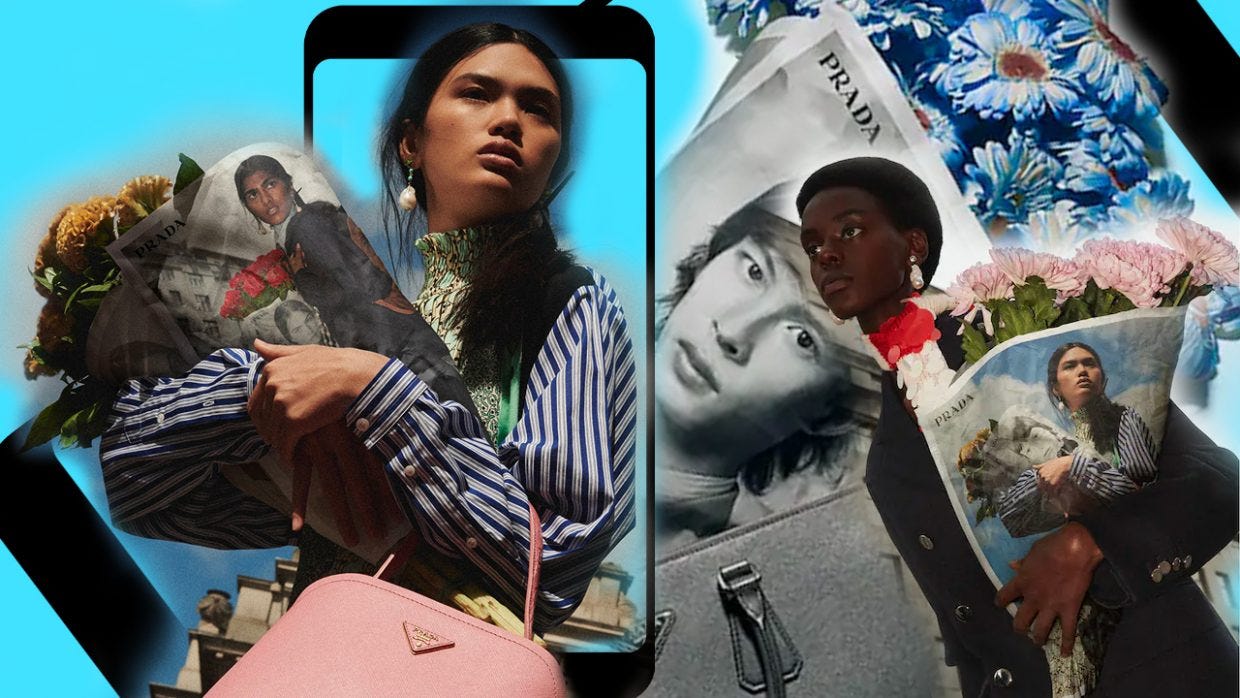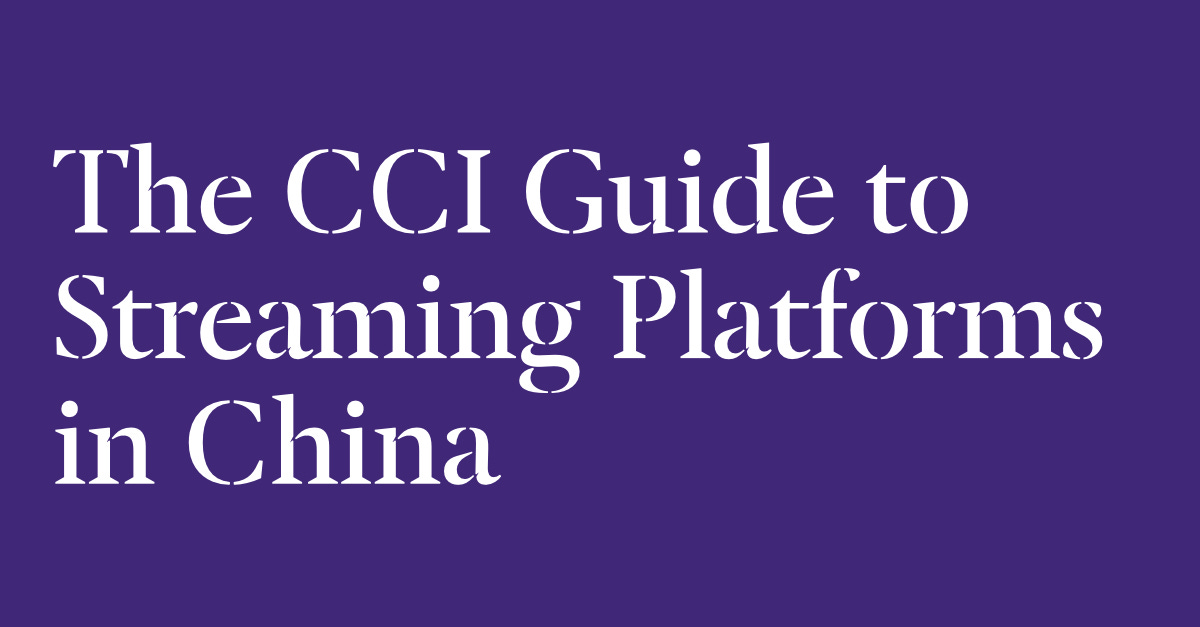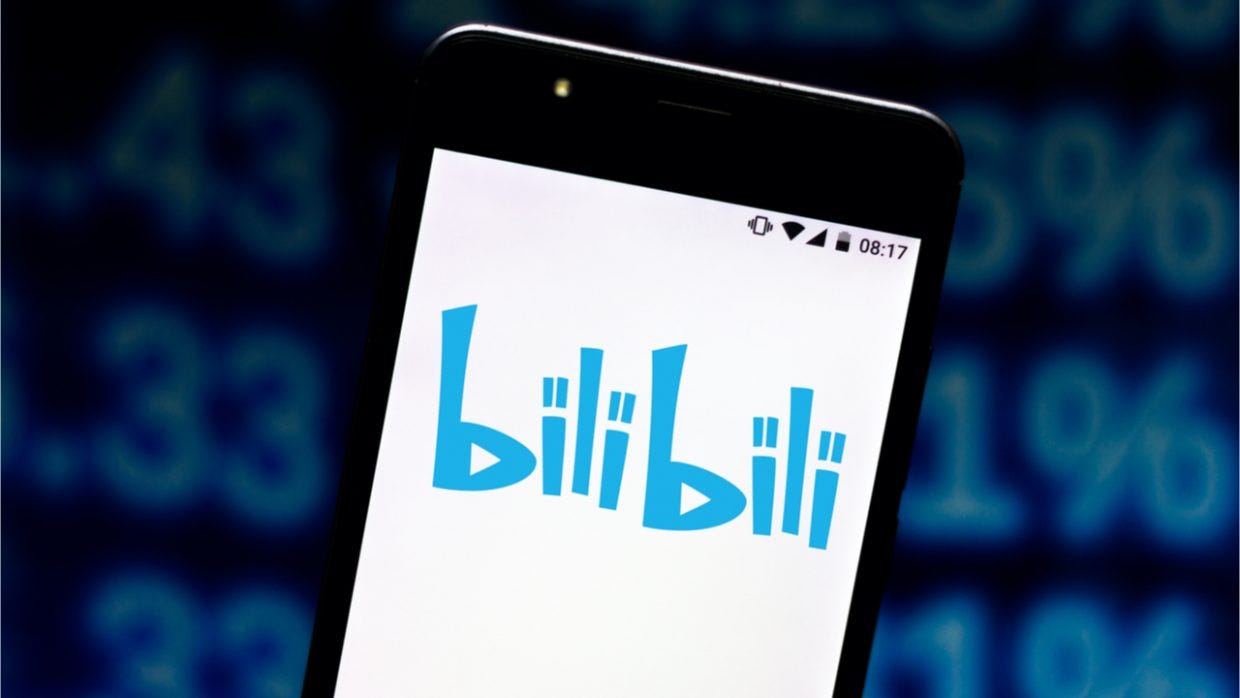How To Take Advantage Of a "Made-up Holiday"
Plus: Museums in the cloud, Bilibili nabs a beauty powerhouse, and a crowded "boss livestreamer" bandwagon.

The Chinese market boasts quite a few opportunities for love and commerce to embrace. In addition to the Western Valentine’s Day on February 14, there is the traditional Qixi festival in late summer (it falls on the seventh day of the seventh month on the lunar calendar) and the “alternative” Singles’ Day on November 11, which has been transformed from a jokey day encouraging self-love into the biggest shopping event in the world.
Spotting a gap in the calendar around this time of year, savvy marketers have seized on yet another made-up holiday on May 20, this one based on the similarity in the sounds for numbers of the date (520) and “I love you” in Mandarin.
Perhaps making up for lost opportunities around the February 14 holiday this year, luxury brands are emphasizing content-driven campaigns for 520 to forge emotional connections with consumers as they return to spending.
Gucci’s “520 Gucci Stories” campaign invited users to share their memories of falling in love with the brand, and enlisted a formidable army of celebrity ambassadors, including Lu Han, Li Yuchun, and Song Yanfei, to recall their experiences as well. The brand set up an “FM520 Gucci radio station” on its Chinese site with celebrity hosts and DJs. Its Weibo hashtag has been viewed 350 million times and drawn 13.4 million posts.
Dior launched a series of limited-edition 520 products appropriate for gifting, such as bags, bracelets, and shoes, and invited celebrity couple Celina Jade and Han Geng to share their love story online.
Louis Vuitton sent actress Song Jia and e-commerce livestreamer Li Jiaqi on a scavenger hunt through a Shanghai mansion in a short film (Li’s first time appearing in a brand film) while also enlisting Li to promote the brand’s fragrances in a separate sales broadcast.
Prada worked with top idol Cai Xukun on its campaign, “Prada 520 Mathematics of Love” (Prada 520爱的公式), which used photo and video to highlight how Cai expressed love during the coronavirus epidemic, using numbers as a key element: Cai wore 11 outfits, baked eight cakes, wrote 12 new songs, searched for the perfect gift 85 times, and so on, adding up to 520.
Domestic lingerie maker Neiwai partnered with high-end U.S. detergent brand The Laundress on a holiday gift box, which is promoted through a film starring dancer Zhu Jiejing and photographer Luo Yang, who shot Neiwai’s recent body-positive “No Body is Nobody” film.
Mentioned in today’s newsletter: Baidu, Dior, Gucci, Gree, Louis Vuitton, Mastercard, McDonald’s, Neiwai, Oppo, Prada, Shiseido, Xiaomi.
The New Stars of Chinese Livestreaming

China’s red-hot livestreaming sector is minting new e-commerce sales stars in the form of corporate bosses and actors keen to cash in on the format’s potential. Dozens of company founders, CEOs, and chairs have turned to livestreaming this year in order to drum up sales in the aftermath of steep declines during the coronavirus outbreak, and out-of-work celebrities are following suit.
Dong Mingzhu, chairwoman of Gree, China’s biggest air-conditioner maker, has made the biggest splash across platforms. On May 10, Dong sold RMB 310 million ($43.8 million) worth of Gree products via the short video app Kuaishou. That followed a very disappointing debut to her livestreaming career a few weeks earlier on Douyin, where she only made around RMB 225,000 ($32,000) in sales, partly due to technical problems. Sales on Kuaishou were boosted thanks to the platform’s generous subsidies that allowed shoppers to enjoy deeper discounts.
While Dong had previously expressed disdain for e-commerce livestreaming, she now says it is a new model of doing business that has gone mainstream. It may also be a necessary one — In the first quarter of 2020, Gree saw a 50% year-on-year drop in revenues and a 72.5% decline in net profits, and Dong’s one-day Kuaishou broadcast reportedly brought in as much as Gree’s total annual online sales.
Dong followed up with an even bigger May 15 event on JD.com’s livestreaming platform to mark Gree’s 10th anniversary of selling on the e-commerce site. Partnering with technology and product review expert Wang Ziru for the show, Dong set a new record for livestream sales of home appliances, selling more than RMB 700 million ($98 million) in products during the three-and-a-half hour livestream.
The May 15 date is being described as a part of livestreaming history, as two other big bosses conducted competing broadcasts at the same time as Dong’s: Smartisan founder Luo Yonghao conducted his seventh livestream sale on Douyin since he started out on the platform on April 1, while Baidu CEO Robin Li appeared on his company’s livestreaming platform with Fan Deng, founder of a popular online book club, for a less commercially-oriented show that drew more than 9 million viewers at its peak.
Actors and other celebrities have been less busy with productions this year due to the coronavirus and may see fewer endorsement opportunities as marketing budgets are slashed, so livestreaming can offer another route to staying in the spotlight while also helping brands make money. Chen He, best known for his role on the long-running romantic sitcom “iPartment” (爱情公寓) made his sales debut on Douyin over the weekend with an announcement that he plans to make a long-term career of selling online. He sold more than $81 million ($11.4 million) worth of consumer goods on his first show, which also included numerous jokes and references to his radio host character on “iPartment.”
While many celebrities are gravitating towards Douyin, which is focused on using star power to help it stand out in the livestreaming crowd, actress Liu Tao partnered with Alibaba’s Juhuasuan flash sales platform for her livestream debut via Taobao Live. In a setting that partially recreated her home, her eclectic range of discounted offerings included paper towels and business class plane tickets, and drew an audience of 20 million for RMB 148 million ($20.8 million) in sales.

We would love to hear your thoughts about our Guide to Streaming Platforms in China. (Available for free for one more week via this link.) What did you enjoy the most? The least? What would you like to see in our upcoming guides?
Shiseido’s Cloud Product Launch on Bilibili

Eschewing more mainstream options such as Taobao Live or Douyin, Japanese beauty brand Shiseido became the latest company to debut a new product via Bilibili, following in the recent footsteps of major consumer brands such as Xiaomi and McDonald’s in flocking to the youth-oriented video platform for product launches.
The campaign, called “Blooming Into White” (为白而绽) promoted a new line of the brand’s signature White Lucent products. On April 27, Shiseido kicked it off with a nearly two-hour-long livestream that was sensitive to Bilibili viewer preferences and lower tolerance for overt commercial content on the platform, generally avoiding hard product placement and sales promotion talk.
Instead, the brand offered content more akin to a Chinese reality show, featuring celebrity ambassadors and influencers with guest interviews, vlogs, and even performances by a pair of stage actors.
The livestream achieved peak viewership of 1.34 million, ranking it first among Bilibili live broadcasts for the date, and saw high engagement with more than 200,000 on-screen comments posted during the show.
Shiseido also worked with a number of Bilibili creators to share videos on the new products following the livestream launch. These were featured on the platform’s popular beauty section, and though it has a smaller audience than bigger platforms, its users are generally stickier and younger.
That demographic is key for a brand such as Shiseido, which already has a well-established consumer base among older groups. Read more in Chinese from Unilever Digital Center
How Fashion and Beauty Brands Can Use Bilibili

It’s critically important for brands interested in developing a presence on Bilibili to understand how the platform differs from its bigger rivals as well as who its Gen Z user base is in order to communicate effectively and creatively.
Like Shiseido, well-established brands such as Louis Vuitton and Fendi have created successful campaigns on Bilibili, often by tying their content to the platform’s original focus on anime, comics, and games.
Brands typically either work with Bilibili creators to develop content or produce their own branded videos. Bilibili is also increasing its investment in original series such as the upcoming “Rap For Youth,” which offer additional opportunities for sponsorships with product placements and other brand integrations.
Read the full story on Jing Daily
Brand Film Pick: Oppo’s Cinematic Gaming Adventure
In September 2019, mobile phone maker Oppo joined global brands such as MasterCard and Louis Vuitton as an official sponsor of League of Legends, its first foray into the major esports arena, and an important one given the rapid growth of interest in gaming in China and globally, which has only accelerated as a result of the coronavirus.
Oppo is using this partnership to promote its latest Reno Ace 2 smartphone, tapping the Chinese esports team that won last year’s League of Legends World Championship to star in an elaborate short animated film. The members of FunPlus Phoenix (FPX) are depicted as hooded avatars (featuring elements of their League of Legends avatars) and wielding their Oppo phones as weapons as they face off against an assortment of challengers in a dramatic mountain-top battle.
Created by the Shanghai-based studio Final Frontier and directed by Hans-Christoph Schultheiss, the full CG film is designed to appeal to discerning fans of the game with a realistic and immersive storytelling experience. “Our audience are LoL and FPX aficionados and would spot any inaccuracies a mile off,” said executive producer Chris Colman. “It was a complex juggling act to incorporate all these elements and make it work inside the demanding schedule.”
News in English
Bytedance has hired the head of Disney’s streaming service, Kevin Mayer, to serve as CEO of TikTok and COO of Bytedance. Mayer says he’s excited about the company’s potential for expansion into gaming and music. New York Times
For luxury labels getting into e-commerce livestreaming in China, achieving the ideal balance between preserving brand image and connecting to consumers is a challenge that may be “impossible.” Business of Fashion
But here are some tips on how to get it right when it comes to defining livestreaming goals, choosing a platform, and involving influencers. The Luxury Conversation
Baidu seeks to boost its livestreaming presence with an RMB 500 million ($70.5 million) investment and a goal of developing 1,000 top content creators for its platform. SCMP
How UFC is winning in China with a local star, millions of fans on Douyin and Weibo, and the launch of an official flagship store on Tmall. SCMP
As Chinese flock to the outdoors following the easing of coronavirus restrictions, picnics are trending along with sales of related products. World Economic Forum
We’ve Got China Covered
China Film Insider: Pandemic Pivots: A Hollywood Ending for The Third Floor
Jing Daily: Why China’s Q&A Platform Zhihu Is the Best Option for Beauty Brands
Jing Travel: How Are Chinese Travel Influencers Handling Covid-19?
Thank you for reading, and to our newest subscribers: welcome! We will see you again on Thursday.
